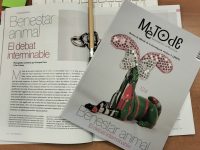|
Religion is usually a rational attempt to explain the incomprehensible. A rational one, based on available information, naturally. Of course, most religions are very old, so their rationalist effort seems quite irrational today. But at the time they tried to shed light and bring order to the chaos of widespread ignorance. Origin myths share a rationalistic intent with religions. Unfortunately, most agnostics do not recognise the effort. On the other side, most followers do not realise the obsolescence of their beliefs. A pair of great misunderstandings. All thinking is structured from available information and the epistemological model to which it refers. If you look at the sky from a geocentrist perspective, your interpretation of the solar system is incorrect, so the conclusions you reach will be increasingly contradictory. But only a minority of bold people imagined heliocentrism. Most still insisted on their paradigm, even when it was nothing more than prejudice. Before Archimedes, everyone thought that buoyancy was a characteristic of wood, rather than an action of the displaced water. The French philosopher of science Gaston Bachelard (1884-1962) called this type of difficulties an «epistemological obstacle». Bachelard suggested fighting intellectual paralysis, generated by the epistemological obstacle, with an «epistemological break» (any knowledge is a mere approximation, to be overcome by new knowledge). Ultimately, he foreshadowed the ideas that would later make Thomas Kuhn (1922-1996) famous, particularly the concept of paradigm. Bachelard wrote in La formation de l’esprit scientifique (1938): «The things we think we clearly know obfuscate what we should know […]. Opinion thinks badly; it does not think but instead translates needs into knowledge.» That is why science is nothing but a permanent state of epistemological eve, constant doubt before any alleged certainty. The scientific method leads to an uninterrupted «epistemological break». We could say that the main teaching of epistemology is the need to constantly subvert epistemological models. Epistemology is the branch of philosophy that studies knowledge (from the Greek ἐπιστήμη [epistḗmē], meaning “knowledge”, and λόγος [lógos], meaning “study” or “reasoning”). Plato claimed, in his dialogue «Theaetetus», that «knowledge is true belief after reason». Maybe Bachelard would have said that it is an opinion turned into temporary reasoned certainty. In any case, the epistemological foundation of any scientific reasoning needs to be solid to be really scientific, and modern epistemology will be nothing if it is not scientific. Bachelard was such a great philosopher because he was also a scientist, if we can say that (real) science and (current) philosophy are two different things. The son of a humble newsagent, he earned a living as a telegrapher before becoming a mathematician and teaching philosophy at the Sorbonne. This multifaceted career must be related to his holistic view of things. He even wrote literary critique. In La poétique de l’espace (1953), he wrote: «The cleverer I am at miniaturizing the world, the better I possess it […] values become condensed and enriched in miniature.» This is the path walked by modern technology, from electronics to computer science or nanomaterials. The English poet William Blake (1757-1827) sensed it as well, and wrote: «To see a world in a grain of sand and a heaven in a wild flower, hold infinity in the palm of your hand and eternity in an hour.» Nothing holds without epistemological rigour and poetic emotion. |
 Illustration: Anna Sanchis Illustration: Anna Sanchis
«We could say that the main teaching of epistemology is the need to constantly subvert epistemological models» |





